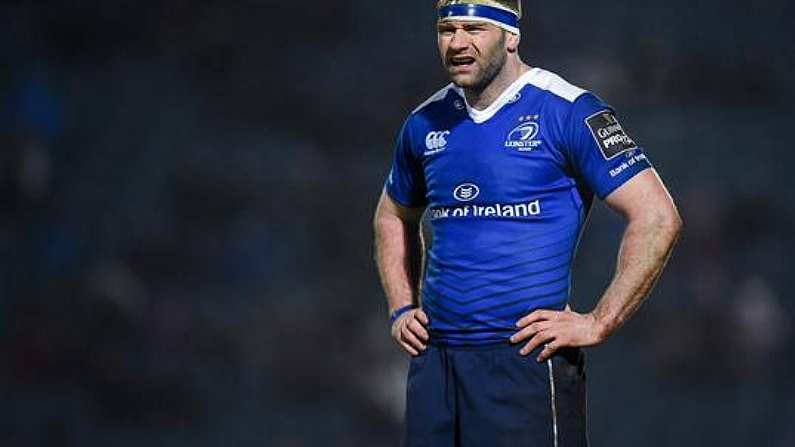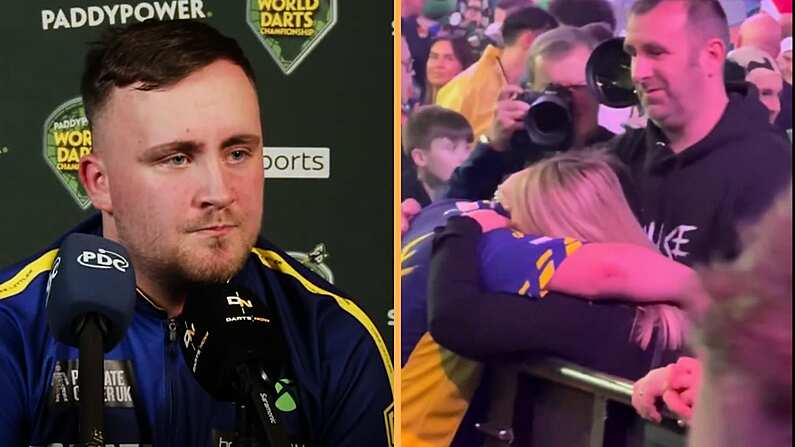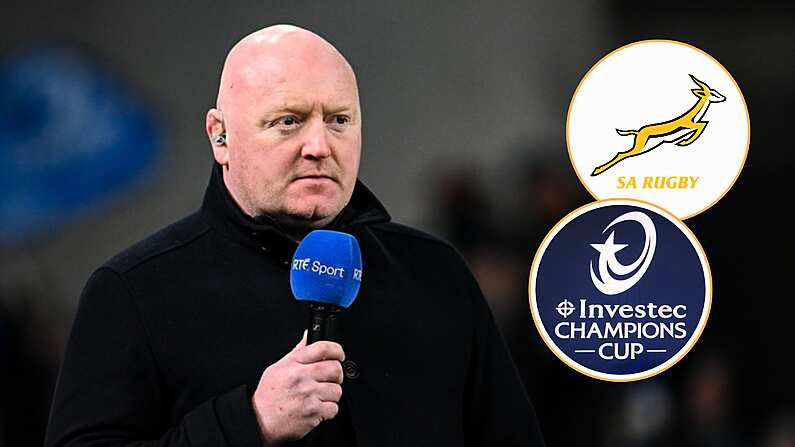Eddie Jones has renamed his bench; Joe Schmidt seems determined to ignore half of his.
Jones has courted an ever-declining level of ridicule for renaming his English replacements as "finishers", but it is Joe Schmidt's use of his bench which will garner the most focus over the week ahead.
The defeat to Wales has thrown into sharp relief the fact that Joe Schmidt doesn't trust his whole squad: a one-armed Conor Murray was preferred for twenty minutes to a fully-fit Kieran Marmion, while Tadhg Furlong and Rory Best played virtually the entire game in the front-row with John Ryan and Niall Scannell moored to the bench, an absurdity considering the flak endured by Furlong and the ineffectiveness of Best.
But then we shouldn't expect anything else.
When a coach in under siege, he reverts to type: it's why Jose Mourinho will bring on Marouane Fellaini when he's chasing a game, and Schmidt is no different. His coaching success is down to his remarkable, near-surgical level of detail, with this the illustrative story from Tom English's No Borders, told by Rory Best, as Schmidt walked into a team meeting:
He says, 'Just to let you know that somebody on their way to their room dropped their key and holder on the floor and that sort of stuff won't be tolerated. If we're sloppy off the pitch, then we'll be sloppy on it.' I was sitting there thinking, 'Oh my God!'.
This anecdote was the founding tale of many a hagiography of Schmidt in the silverware-laden days: this is a coach of the most immaculate preparation; a far cry from the rugged, bumbling preparation of Irish teams in the past. Think Mick Doyle's tactical instructions to Neil Francis on playing at number 8: "if the Pope comes around the corner of that scrum on a Honda 50 fucking nail him".
Now, however, that tale functions as being illustrative of the other edge of the sword.
For Schmidt to wield that level of control, he needs to trust those around him. And mid-competition, with the pressure on, the safe thing to do is to revert to what you know. Hence Schmidt's perceived favouring of Leinster: the only thing he is biased toward is maximising the opportunity to win, and that means picking what he knows. It's why Tommy Bowe has been involved, and it's why Fergus McFadden has today been drafted in as his replacement.
McFadden's selection is merely another example of Schmidt sticking to what he knows. In no way is McFadden's selection related to form: he has played four times for Leinster this season, and has completed 80 minutes just twice all year. It may be the case that Schmidt solely wants McFadden in camp to help run the drills which he knows better than anyone, to make preparation for England to go more smoothly.
In no particular order: Adam Byrne, Jacob Stockdale, Andrew Conway, Darren Sweetnam, and Rory O'Loughlin are, on form, more deserving of a shot at the 23 against England than McFadden. And that's not being unfair to McFadden, his impact this season has been smaller than all of those named.
But then this is the trade-off with Schmidt: the picking of McFadden is consistent with what he was appointed to the job for, and why he was given a contract extension. He does not pick players on form: he picks on reliability.
There is a wider issue at play, though. The professional set-up in Ireland is designed to serve the best interests of the international team, but that should not be equated with the selection whims of Joe Schmidt. Ian Madigan's travails abroad are a good look for the IRFU in the sense that it validates their policy of keeping players at home, that if you're a young player in Ireland who wants to play for Ireland, you're better off staying in Ireland. But what happens when that stops being the case?
The inclusion of McFadden will be justified by the short-term: the final game of the Championship is a game for winning, not development, and the summer tour will see a raft of fresh faces with regular off with the Lions. But how many of these will still be involved with the November internationals? The most recent tour to Argentina under Schmidt saw six debutants (Marmion, Ah You, Reid, James Cronin, Rob Herring, Robie Diack), with only Marmion still involved with the senior set-up. It is plausible that the November squad will be made of a bunch of fresh faces owing to the sheer talent coming through, but it is equally so that the old boys return to win to consolidate world rugby rankings.
When the international coach picks on the execution of the gameplan, and ignores those in form for the provinces, which has been clear today and across the Six Nations, there comes a time when the coach's policy clashes with those of his employers.










